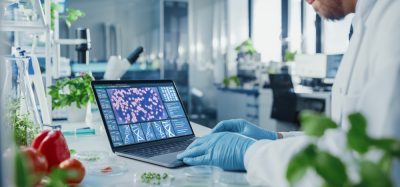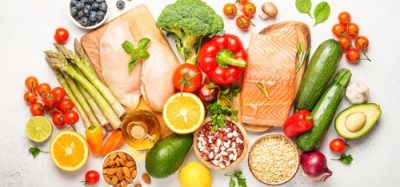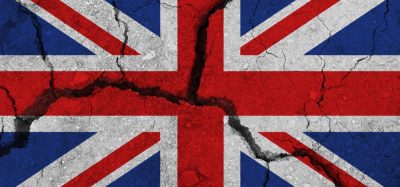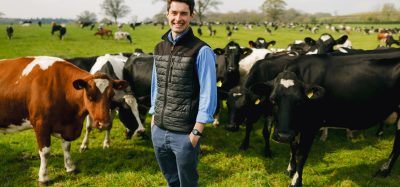Silent Enemies: Part 4 – The Sound of Silence
Posted: 30 October 2025 | Dr Darin Detwiler LP.D. | No comments yet
Some failures leave no alarms – just empty chairs, unanswered questions and a mission that never ends. In Part 4 of Silent Enemies, Dr Darin Detwiler shares the personal loss that transformed his mission, revealing how silence in food safety can carry the heaviest cost of all.
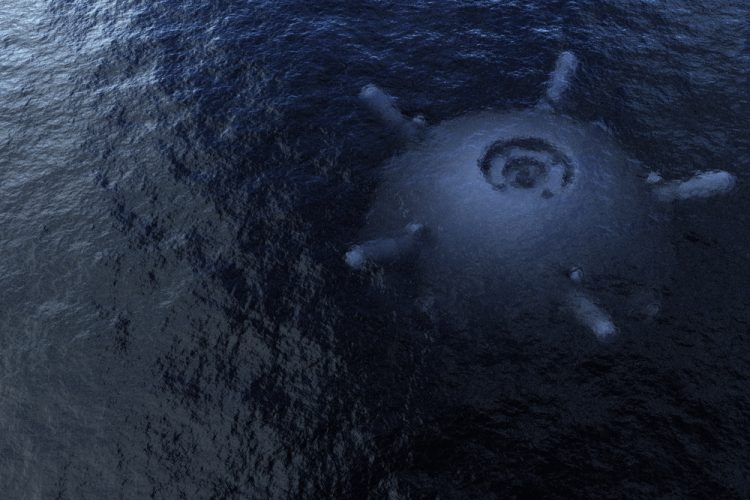

Some dangers remain unseen until it’s too late. In food safety, as at sea, silence can hide the most devastating threats.
When I left the submarine service, I believed I had completed my mission.
I had survived reactor drills and flooding emergencies. I had signed off on systems that kept lives intact under hundreds of metres of pressure. I had learnt about vigilance, about risk, and about how to listen for what was not there.
But nothing prepared me for what came next.
Eight months after I left the Navy, my son Riley – my perfectly healthy 16-month-old toddler – died after being infected with E. coli during a 1993 outbreak.
He died not from consuming the contaminated meat; he became infected at his daycare nursery. Another child there had been sick after eating a contaminated hamburger from a fast-food chain. The parents, waiting on test results, still dropped their child off. They did not warn the staff; they didn’t think it mattered.
I watched, I noted, I asked questions, desperate for signs of improvement. But this time, there was no checklist to follow; no procedure to halt the breach. We were running out of time and this enemy was not going to surface: it was already inside.”
Over the next few weeks, the infection ravaged Riley’s small body with terrifying speed. What began as stomach cramps and fatigue escalated into something unrelenting.
After being seen at our local hospital, his condition deteriorated so quickly that he had to be airlifted 150 kilometres away to a regional paediatric facility. There, surgeons removed large portions of his intestines – shredded by the toxin unleashed by the E. coli. His kidneys were failing. His sixteen-month-old frame was barely visible beneath the web of wires, tubes and machines fighting to keep him alive.
I knew little about that medical equipment, but I studied it with the same intensity I once gave the reactor gauges aboard a nuclear submarine. Every monitor became a mission-critical display. Every digital spike or sudden drop meant something – something I had to understand. I was not trained for this battlefield, but the instincts carried over.
I watched, I noted, I asked questions, desperate for signs of improvement. But this time, there was no checklist to follow; no procedure to halt the breach. We were running out of time and this enemy was not going to surface: it was already inside.
Riley died just weeks after his first symptoms appeared – sixteen-months-old. He was the youngest and the last to die in the landmark 1993 ‘Jack in the Box’ E. coli outbreak.
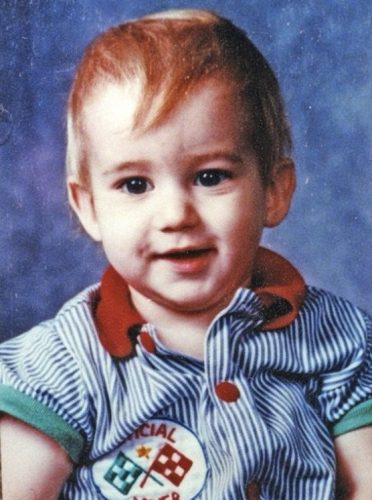

Riley Detwiler (1991-1993)
His life had not been lost to war or disaster. It had been claimed by a foodborne pathogen – something microscopic, something preventable. And in that moment, I understood grief in its rawest form.
I had once served to protect lives in the deep. Now I was surfacing into a different kind of service – one that would carry his name – to never again ignore the dangers that hide in silence.
Network television broadcasted Riley’s funeral live. It was never meant to be a public moment, but something about the scale of the outbreak – and the innocence of its youngest victim – captured the country’s attention and broke its heart.
I was still in the military, serving in the Navy Reserves. That day, I did not wear my uniform; I wore a suit. I dressed not as a sailor, but as a father, carrying out a promise.
A Navy Honor guard stood at attention as I stepped forward towards the impossibly small casket. In my hand was the warfare insignia I had earned deep beneath the surface…my submarine ‘dolphins,’ the silver emblem signifying vigilance, qualification and the weight of responsibility under pressure.
I had always imagined passing it down one day, perhaps sharing stories of patrols and pride. But instead, I placed it gently atop Riley’s coffin. He had sacrificed more than I ever had.


US Navy Submarine Warfare insignia (Silver Dolphins). U.S. federal government., Public domain, via Wikimedia Commons
As the casket was lowered into the earth, a silence fell that was deeper than any depth I had ever sailed. It was the kind of silence that does not end with the ceremony. It follows you home. It changes your mission.
I had once served to protect lives in the deep. Now I was surfacing into a different kind of service – one that would carry his name – to never again ignore the dangers that hide in silence.”
From that day forwards, I understood that my watch was not over. It had only shifted to the surface; to the systems above ground and to a different kind of threat that, like those at sea, demanded vigilance before tragedy, and action before regret.
I thought back to Williams from the submarine – his loss of a son and how he had drifted through those narrow halls like a ghost. How he seemed unreachable. How I had not understood the silence he wore like armour.
Back then, I did not understand. Not really.
But now I do.
I would learn precisely what it meant to return to your role… with your soul left behind.
In the years that followed, I entered the world of food policy and safety – not because I was curious, but because I was called. I had seen firsthand what happens when warnings go unheeded. When people do not own their responsibility. When profits are prioritised over prevention.
I still see echoes of submarine protocol everywhere:
- The unforgiving speed of failure
- The danger of warnings unacknowledged
- The true definition of responsibility.
I have also seen that same culture of silence. The kind that follows a preventable death. The kind that refuses to name names, to acknowledge fault, to accept consequences.
After Riley’s funeral, I made a decision: I would never again be silent. I could no longer wait for someone else to speak up, or hope that someone else would lead.
Because responsibility – real responsibility – isn’t something you wait to be given. It is something you claim when the cost of inaction becomes unbearable.
I carry this not because I chose to – but because I lived it. I saw what happens when silence wins.
And like Admiral Rickover said: when responsibility is rightfully yours, you do not pass it off. You do not shrink from it.
You step forward. You speak out. You turn pain into purpose.
Not just for your own child, but for every child who still has a chance.
I do not believe my role is to eliminate pathogens, because we will never live in a world without them. My purpose is to help increase the public’s awareness and to help leaders make decisions based on their better understanding of the true burden of disease.
I often think back to the dosimeters I wore in the submarine’s reactor compartment.
One gave me instant readings – immediate data to help me respond in real time.
The second one offered no such clarity until after the exposure had occurred.
And the third? It was reserved for the worst-case scenario – used only when the danger had already arrived.
I cannot imagine standing in that space, knowing there was a threat in the air, yet having no way to respond until it was too late.
I do not believe my role is to eliminate pathogens, because we will never live in a world without them. My purpose is to help increase the public’s awareness and to help leaders make decisions based on their better understanding of the true burden of disease.”
That’s what food safety can feel like: a delayed reading on a silent threat. By the time the data arrives, it’s too late. The damage is already done and some losses cannot be repaired.
Everything I thought I understood about risk, about preparation, about ‘the system’ all changed.
This wasn’t flooding or radiation or enemy submarines. This was supposed to be civilian life – my family was supposed to be safe.
For years, I have fought to make the invisible visible – to build systems that act before tragedy arrives cloaked in latency. I have studied the data, traced the exposures and watched the symptoms metastasise not only in bodies, but in bureaucracies too slow to respond.
I have sat across from mothers whose hands trembled over creased photographs, from fathers whose silence no language could fill. They all carry the same unbearable truth: a name spoken in past tense; a life measured in birthdays missed.
And through tears – always through tears – comes the question that never changes, the one I asked myself decades ago:
“How can this still be happening… today?”
In boardrooms and courtrooms, classrooms and conference rooms, I have carried these stories forward – each one a reminder, each one a call not just to listen, but to act.
I will never forget Williams, my friend on the submarine who buried a child he had sworn to protect. I will never forget the day he boarded that submarine again; uniform pressed, life unstitched, eyes hollow.
He never truly returned.
Neither did I.
There is a quiet irony in it all. Submarines are meant to be undetectable – moving in silence, leaving no trace. For too long, the risks in our food systems have done the same: silent, unseen, left unchallenged.
But that is changing. Today’s food safety professionals are definitely not passive observers of system failure. They are microbiologists who trace the invisible; data scientists who catch the early pulse; and policy leaders who refuse to wait until it is too late.
Yet silence still endures – the one I carry home.
The silence of a chair, forever empty, at the family table.
And it is the one silence that too many will never learn to accept.
New to the series?
Read Silent Enemies Part 1, Part 2 and Part 3.
Become a member and be the first to discover exclusive insights and features from New Food.
You can also hear Dr Darin Detwiler discuss the Silent Enemies series in Episode 5 of his podcast Confessions of a Food Safety A**Hole.
About the author:
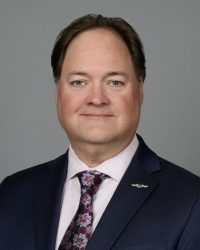

A professor and the author of Food Safety: Past, Present, and Predictions, Dr. Detwiler is a frequent keynote speaker at international summits, industry forums, and government panels. His insights have helped shape food safety modernization efforts and regulatory reforms in countries around the world. He appears in the Emmy Award–winning Netflix documentary Poisoned: The Dirty Truth About Your Food, which continues to fuel global dialogue on food system accountability and consumer protection. His leadership and advocacy have made him a prominent figure in both public discourse and policy development.
With a career that bridges academia, industry, and international diplomacy, Dr. Detwiler is a trusted voice working to elevate food safety as a shared global responsibility—and to inspire a new era of integrity and transparency across the world’s food systems.
Resources
This series is a collaboration with PEP Nexus, the organisation founded by author Darin Detwiler. To access a glossary and other resources that provide additional context for this series, click the Silent Enemies icon below.
Related topics
Contaminants, Food Safety, Health & Nutrition, Hygiene, Outbreaks & product recalls, Pathogens, Rapid Detection, Regulation & Legislation, Sanitation, Supply chain, The consumer, Traceability, World Food



